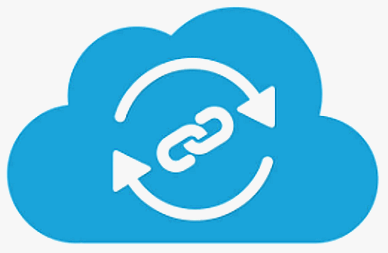Accredited InvestorsAltcoinAnatoli UnitskyAnti-Money Laundering (AML) In CryptoAPIArbitrageArtCoin TokenArticle DirectoryASICAuction Terminology GlossaryBasics of Stock Market InvestingBear MarketBest Crypto Payment Provider In the WorldBitcoinBlockchainBlockchain ConfirmationBlockchain Consensus MechanismBlockchain ForkBlockchain GlossaryBored Ape Yacht ClubBuild a Business That OutperformsBull MarketBuying SkyWay SharesByzantine Fault Tolerance (BFT) ExplainedCasascius CoinCentral Bank Digital Currency (CBDC)Centralized Crypto ExchangeCoinCoinsetCold WalletCollateralCommodity Futures Trading Commission (CFTC)Cross-Chain TechnologyCRUCrypto ExchangeCrypto GlossaryCrypto JokesCrypto Terms to KnowCrypto TickerCryptocurrencyCryptographyCryptojackingCryptounit BlockchainCryptounit GlossaryCryptounit ProgramdApp (Decentralized Application)Dead CoinDecentralized Exchange (DEX)Decentralized Finance (DeFi)Difference Between Bitcoin and EthereumDifferent Ways of Investing MoneyDigital CurrencyDistributed LedgerDo Your Own Research (DYOR)Dollar Cost Averaging (DCA)Dow Jones Industrial Average (DJIA)EncryptionERC-20ERC-721EthereumEvoScentFear Of Missing Out (FOMO)Fear, Uncertainty and Doubt (FUD)Fiat MoneyFNT Fintech CompanyGenesis BlockGlobal Unit PayGlossary of Banking TermsGlossary of Business TermsGlossary of Financial TermsHalvingHODLHot WalletHow Do I Start InvestingHow Rich is Satoshi Nakamoto?How to Create a BlockchainHow to Find Private InvestorsHow to Get Into FintechHow to Program Smart ContractsI Am Thrilled to Be a Part of This Global ProjectInitial Coin Offering (ICO)Initial Public Offering (IPO)Initial Token Offering (ITO)Innovation Basalt TechnologyInnovative Transportation TechnologiesInternational Bank Account Number (IBAN)Investing in Gold Mining StocksInvesting in Gold MiningJagerJoy of Missing Out (JOMO)Know Your Customer (KYC)LedgerLiquidity in CryptocurrencyMaker and Taker Fees in Crypto TradingMarket Capitalization (Market Cap)Meme CoinMetal Credit CardMetaMaskMillenials Now Have Access to Generational WealthMy Best Investment EverNew Digital EvolutionNFT GlossaryOff-Chain TransactionsOn-Chain TransactionsOpen Edition NFTPeer-to-Peer (P2P)Personal Loan GlossaryProbably the Best STO on the MarketProof of Stake (PoS)Real Estate Glossary of TermsReal Estate Investing GlossaryRebase TokenSecurities and Exchange Commission (SEC)Security Token ExchangesSecurity Token Offering (STO)Soulbound Decentralized Identities for Security TokensSoulbound ID Launch by Stobox Proves a SuccessSoulbound TokensStoboxStock Market GlossaryTestimonialsTether Platform and Token (USDT)UnitEx ExchangeUnitsky String TechnologiesUNTBUSDUValidatorWe Started Investing When We Were 25What are Blue Chip NFT?What are Blue Chip Stocks?What are Crypto Assets?What are Crypto Smart Contracts?What are CryptoPunks NFT?What are Digital Assets?What are Digital Collectibles?What are Gas Fees?What are Gas Wars?What are Hashmasks?What are Non Fungible Tokens?What are Non-Sufficient Funds (NSF)?What are Soulbound Tokens (SBT)?What are Stablecoins in Crypto?What are Transactions Per Second (TPS)?What are Utility NFTs?What are Utility Tokens?What Does Burning Crypto Mean?What Does Diamond Hands Mean?What Does Paper Hands Mean?What Does To The Moon Mean?What Does WAGMI Mean?What Happened to Satoshi Nakamoto?What is a 51% Attack?What is a Baby Boomer?What is a Backlink?What is a Banner?What is a Barcode?What is a Bid-Ask Spread in Crypto?What is a Block in Blockchain?What is a Block Reward?What is a Blockchain Address?What is a Blockchain Node?What is a Blockchain Oracle?What is a Blog?What is a Bond?What is a Bot?What is a Broker?What is a Business Accelerator?What is a Cash Cow?What is a Commercial Bank?What is a Commodity?What is a Con?What is a Credit?What is a Credit Limit?What is a Credit Rating?What is a Crypto Airdrop?What is a Crypto Bridge?What is a Crypto Scam?What is a Crypto Token?What is a Crypto Wallet?What is a Crypto Whale?What is a Crypto Winter?What is a Cryptocurrency Public Ledger?What is a Cryptocurrency Roadmap?What is a DAO?What is a Dark Pool?What is a Day Trader?What is a Dead Cat Bounce?What is a Default?What is a Derivative?What is a Digital Credit Card?What is a Fiscal Quarter?What is a Fungible Token?What is a Governance Token?What is a Grace Period?What is a Hard Fork?What is a Hot Wallet?What is a Hybrid Blockchain?What is a Hybrid PoW/PoS?What is a Joint Account?What is a Market Cap?What is a Merkle Tree in Blockchain?What is a Mining Farm?What is a Nonce? What is a PFP NFT?What is a POS System?What is a Prepaid Card?What is a Private Blockchain?What is a Private Key?What is a Public Blockchain?What is a Public Key?What is a Reserve Currency?What is a Ring Signature?What is a Routing Number?What is a Rug Pull in Crypto?What is a Safe Deposit Box?What is a Satoshi?What is a Security Token?What is a Seed Phrase?What is a Shitcoin?What is a Sidechain?What is a Soft Fork?What is a Spot Market?What is a State Bank?What is a SWIFT Code?What is a Tax Identification Number (TIN)?What is a Time Deposit?What is a Transaction Account?What is a Variable Interest Rate?What is a Virtual Assistant (VA)?What is a Virtual Card?What is a Virtual Currency?What is a Visa Card?What is a Whitelist in Crypto?What is a Whitepaper?What is Accounts Payable (AP)?What is AMA in Crypto?What is Amortization?What is an Accrual?What is an ACH Transfer?What is an Actuary?What is an Addendum?What is an Algorithm?What is an Angel Investor?What is an Annuity?What is an Asset?What is an ATM?What is an Atomic Swap?What is an Audit?What is an Avatar?What is an EIN?What is an Embargo?What is an Entrepreneur?What is an IDO (Initial Dex Offering)?What is an Interest Rate?What is an Internet cookie?What is an Investment Bank?What is an NFT Drop?What is an NFT Floor Price?What is an Ommer Block?What is an Orphan Block?What is an Outstanding Check?What is an Overdraft?What is Artificial Intelligence (AI)?What is B2B (Business-to-Business)?What is B2G (Business-to-Government)?What is Bartering?What is Bitcoin Dominance?What is Bitcoin Pizza Day?What is Blockchain Immutability?What is Blockchain Used For?What is BRICS?What is Business-to-Consumer (B2C)?What is C2C (Customer to Customer)?What is Capitalism?What is Catfishing?What is CFD Trading?What is Check Kiting?What is Cloud Mining?What is Communism?What is Content Marketing?What is Decentralization in Blockchain?What is DeFi in Crypto?What is Delisting?What is Depreciation?What is Digital Marketing?What is Diversification?What is Double Spending?What is Dumb Money?What is Dumping?What is Earnings Per Share (EPS)?What is Economics?What is Email Marketing?What is Equity?What is Etherscan?What is Fintech?What is Foreign currency?What is Forex?What is Fundamental Analysis (FA)?What is GameFi?What is Generative Art NFT?What is Gwei?What is Hard Currency?What is Hash Rate?What is Hashing in Blockchain?What is Inflation?What is Initial Game Offering (IGO)?What is Interest?What is Interest Income?What is Mainnet?What is Mastercard?What is Metaverse in Crypto?What is Mining in Cryptocurrency?What is Minting NFT?What is Mobile Banking?What is Money Laundering?What is NFT Alpha?What is NFT Metadata?What is NFT Rarity?What is NGMI Meaning?What is Nominal Interest Rate?What is Online Banking?What is Open-End Credit?What is OpenSea NFT Marketplace?What is Personal Identification Number (PIN)?What is Play-to-Earn?What is Polygon?What is Proof of Authority (PoA)?What is Proof of Work (PoW)?What is Public Key Cryptography?What is Pump and Dump?What is Quantum Computing?What is Refinancing?What is Retail Banking?What is Ripple?What is Sharding?What is Slippage in Crypto?What is Smart Money?What is Solvency?What is Soulbound ID?What is SSL?What is Staking in Cryptocurrency?What is Technical Analysis (TA)?What is Testnet?What is the Ask Price?What is the Better Business Bureau (BBB)?What is the Bid Price?What is the Dark Web?What is the InterPlanetary File System (IPFS)?What is the Gold Standard?What is the Lightning Network?What is the Prime Rate?What is the Sandbox?What is the Secondary Market?What is the World Bank?What is Tier 1 Capital?What is Tokenomics?What is TRC-20?What is Universal Banking?What is Unspent Transaction Output (UTXO)?What is Usury?What is Volatility in Crypto?What is Wash Trading?What is Web3?What is Whisper?What is XRP?What is Zero-Knowledge Proof (ZKP)?Who is Beeple?Who is Satoshi Nakamoto?Who is Vitalik Buterin?Why Tokenization is a Safe HavenWhy You Should Try Your Hand at Trading
What is a Blog?
- Home
- Glossary of Business Terms
- What is a Blog?
In today's digital age, many individuals seek to broaden their online reach.

Blogging has emerged as a popular strategy to achieve this, but not everyone is familiar with what a blog is and how to start one. Initially introduced in 1994, blogs were used primarily as a means to share personal experiences and interests. However, with time, blogs have evolved into a crucial marketing tool for businesses and a lucrative career option for individuals.
What is a Blog?
A blog, which is short for "weblog", refers to an online journal or informational website that is managed by an individual, group, or corporation. The blog typically contains regularly updated content in the form of blog posts that are centered around a specific topic. The content is presented in reverse chronological order, with the most recent posts appearing first. The writing style of a blog is typically informal or conversational, allowing for easy comprehension by its audience.
A Brief History of Blogging
The concept of blogging first emerged in the late 1990s, when individuals started to share their personal experiences and opinions on the internet through online journals. These online journals were known as weblogs or blogs, and they quickly gained popularity among internet users. At that time, blogs were simple websites that contained a series of posts, organized in reverse chronological order.
Jorn Barger, who was a blogger for Robot Wisdom in 1997, is credited with coining the term "weblog" to describe his process of documenting his online journeys as he surfed the internet. The term was later shortened to "blog" in 1999 by programmer Peter Merholz.
Over time, blogging evolved from a simple hobby to a powerful tool for online communication. Today, there are millions of blogs covering every topic imaginable, from personal experiences to political analysis, and everything in between.
The Evolution of Blogging
As blogging has evolved over the years, so too have the tools and platforms used to create and manage blogs. In the early days of blogging, individuals would often create their own websites using HTML and other programming languages. However, as blogging became more popular, a number of platforms emerged that made it easy for anyone to start a blog without any programming knowledge.
Today, there are several popular blogging platforms available, including WordPress, Blogger, Medium, and Tumblr. These platforms provide users with a variety of tools and features, such as customizable themes, plugins, and widgets, that make it easy to create and manage a blog.
What Makes a Blog Different from a Website?
One of the main differences between a blog and a traditional website is the way content is presented. Unlike a website, which often contains static pages that rarely change, a blog is constantly updated with new content in the form of blog posts.
Another key difference between blogs and websites is the level of interactivity they provide. While websites are often designed to provide information to visitors, blogs are designed to encourage interaction and engagement. This is typically done through features such as comments, social media sharing buttons, and the ability to subscribe to the blog via RSS or email.
Blogs also tend to have a more personal tone than traditional websites. Because they are often written by individuals or small groups, blogs often reflect the personality and opinions of the author(s). This can make them more engaging and relatable to readers.
Benefits of Blogging
There are many benefits to blogging, both for individuals and businesses. For individuals, blogging can be a way to express themselves, share their experiences, and connect with others who have similar interests. It can also be a way to build a personal brand and establish oneself as an expert in a particular field.
For businesses, blogging can be an effective marketing tool. By creating high-quality content that is relevant to their target audience, businesses can attract more visitors to their website and build brand awareness. Blogging can also be a way to build trust and credibility with potential customers, by demonstrating the company's expertise and knowledge in their field.
Tips for Starting a Blog
If you're interested in starting a blog, there are a few things you should keep in mind. First, choose a topic that you are passionate about and that you have knowledge and expertise in. This will make it easier for you to create high-quality content that will engage your readers.
Next, choose a blogging platform that meets your needs. WordPress is one of the most popular platforms, but there are many others to choose from as well. Look for a platform that is easy to use and has the features you need to create and manage your blog.
Once you've chosen your platform, start creating content. Aim to publish high-quality posts on a regular basis, and make sure to promote your blog on social media and other relevant channels to attract readers. Interacting with your readers through comments and social media can also help build a loyal audience.
It's important to remember that blogging takes time and effort, and success doesn't happen overnight. Be patient, consistent, and willing to learn and improve as you go along.
Related Articles

Solo Build It
Most people make the mistake of believing that the site or blog is the business. It's not. Building a site or blog is the easy part. The harder, more important parts are...

What is a Backlink?
This could be a blog post, a whitepaper, a case study, or any other type of content that provides value to your target audience.
- Home
- Glossary of Business Terms
- What is a Blog?